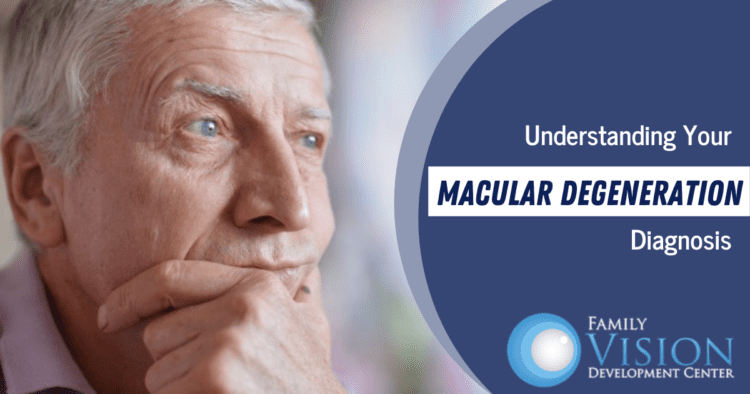A head injury is nothing to take lightly. In fact, any type of situation that results in a blow to the head can lead to problems down the line, even if it does not seem serious at the time. For instance, an incident such as a car accident, a slip and fall, a child falling off a bike without a helmet, or a sports injury may not appear to have caused any significant damage. However, a concussion that results from a head injury can be more serious than it initially appears. And while it may not be obvious at the time, it can leave lasting effects on your vision if not treated properly.
Concussion and its Effects on Vision
A concussion is a mild traumatic brain injury that results from a bump, blow or jolt to the head or the body that is violent enough to cause the brain to hit the skull. While the effects can be wide-ranging, including dizziness, confusion or memory loss, changes to your vision can also occur (known as post-concussive vision syndrome).
If you have experienced a head injury of any kind, be on the lookout for these common vision problems that often result from this type of trauma:
- Eye Focusing – not able to quickly and easily see an object clearly (objects look blurry).
- Eye Movements and Tracking – not able to easily follow a moving object from one spot to another, or switch fixation from one object to another.
- Depth Perception Issues – difficulty with accurately judging the distance between objects.
- Eye Teaming – not able to get both eyes to work together to focus on an object
- Peripheral Vision Loss – problems with your wide-angle field of vision, or feeling like you’re looking through a narrow tube
Treatment With Vision Therapy
Vision therapy is an extremely effective form of treatment for post-concussive vision syndrome that occurs as a result of a head injury. Family Vision Development Center’s highly-experienced providers have extensive training in developing vision therapy programs to restore proper vision following a head trauma. Our one-on-one, personalized consultations will help ensure your injuries are treated in the quickest, most efficient way possible. Contact us at 630-862-2020 to make an appointment in our Aurora office or visit us online to learn more.
Additional information can be referenced here
Age-related macular degeneration (or AMD) is a leading cause of vision loss among older adults in the United States. In fact, according to the Centers for Disease Control and Prevention (CDC), the number of older Americans who are affected with some form of the disease is expected to double, to 88 million, by the year 2050. If you have recently received a diagnosis of AMD, you are probably concerned about what it actually means to live with this eye condition. In order to alleviate some of that concern, here are some questions you can ask us about during your visit so you know what changes to expect in your daily life.
Is There a Difference Between Wet and Dry AMD?
There is a difference, and it is important to know which form you have been diagnosed with. While a majority of cases are dry, the remaining cases are wet, which is more serious. It is possible to be diagnosed with dry AMD, but progress to wet, which accounts for the most severe cases of vision loss.
What Treatment is Available?
Unfortunately, there is no outright cure for AMD. However, there are many options available to treat the disease which can markedly improve your vision. For instance, dietary supplements, injections and laser treatments have all been shown to be effective forms of treatment. We will thoroughly assess the current progression of your AMD and offer guidance as to which treatment options would be most beneficial.
Is There Anything I Can Do to Slow the Progression of my AMD?
Certain lifestyle changes, like quitting smoking and healthy food options, have been shown to make a difference in terms of AMD progression. Here at Family Vision Development Center, our philosophy of whole body wellness helps us make recommendations to our patients that extend beyond the eyes. This individualized care has proven to be very beneficial to those who are dealing with AMD.
Are There Certain Devices That Can Help Me Live With Vision Loss From AMD?
Daily life can definitely become more challenging when macular degeneration is affecting your vision. However, there are many kinds of helpful low-vision devices, such as magnifiers or telescopic glasses. We are happy to provide information on new technologies and low-vision resources that can make your daily life easier to manage.
Will I Pass it on to My Kids?
AMD can be hereditary, which means your children may have a greater chance of developing some form of macular degeneration as they get older. If you have been diagnosed, we will help you determine, based on your medical history and other factors, if your children are at a higher risk for developing the disease.
Contact Family Vision Development Center at 630-862-2020 to schedule your appointment in our Aurora office. We look forward to helping you work through your concerns about your AMD diagnosis and develop the right tools to manage the disease in your daily life.
Additional information can be referenced here



